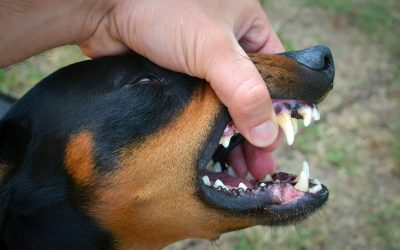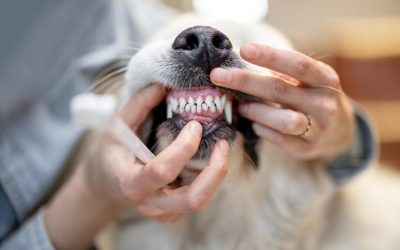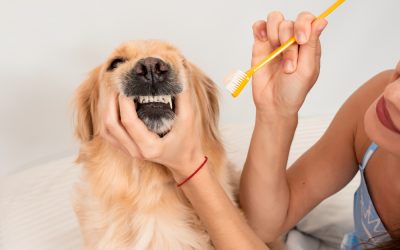Pet Dental Health Month: Your Pet’s Dental Health Matters

As devoted pet parents, we aim to nurture every aspect of our furry companions’ well-being, often focusing on nutrition, exercise, and regular veterinary care. However, one critical aspect of their health is often overlooked: dental hygiene. Pet Dental Health Month, observed every February, highlights the importance of maintaining our pets’ oral health and fosters awareness of how this care contributes to their overall happiness and vitality.
Why Your Pet’s Dental Health Matters
Like humans, pets rely on their teeth and gums to eat, groom, and explore their environment. However, neglecting their dental care can lead to serious issues, from bad breath to life-threatening systemic infections. Here’s why prioritizing their dental health is essential:
- Gum and Heart Health Are Linked: Untreated dental infections can spread bacteria to vital organs, like the heart and kidneys, potentially causing long-term damage.
- Comfort and Quality of Life: Dental issues, such as painful fractures or gum disease, can diminish your pet’s ability to enjoy daily activities like chewing, playing, or relaxing.
- Early Intervention Saves Costs: Preventive care costs far less than addressing advanced dental problems, making regular cleanings a smart investment in your pet’s health and budget.
Common Dental Issues in Pets
Knowing what to look for is key to keeping your pet’s mouth healthy. Common issues include:
- Periodontal Disease: This gum infection is the most prevalent dental issue in pets, often leading to tooth loss or worse if left untreated.
- Plaque and Tartar: Accumulated plaque hardens into tartar, irritating gums and fostering bacteria growth.
- Tooth Fractures: Pets’ chewing habits sometimes lead to broken teeth, causing pain that’s not always immediately noticeable.
- Oral Growths: Less common but potentially serious; tumors or cysts can develop in pets’ mouths and require prompt attention.
How Pet Dental Health Month Makes a Difference
Every February, this campaign lets you take stock of your pet’s oral care routine. Pet Dental Health Month will focus on:
- Increasing Awareness: Helping pet owners recognize the widespread prevalence of dental problems and their impact on overall health.
- Encouraging Early Action: Promoting regular veterinary check-ups to catch issues before they escalate.
- Sharing Preventive Strategies: Highlighting brushing tips, dental-friendly diets, and chewable aids to simplify oral care at home.
- Celebrating Innovations: Showcasing the latest in veterinary dental treatments, including improved tools and new oral hygiene products for pets.
Simple Steps to Improve Your Pet’s Dental Health
Caring for your pet’s teeth doesn’t have to be intimidating. Start small with these manageable steps:
- Introduce Brushing: Use pet-safe toothbrushes and flavored toothpaste to clean their teeth gently. Begin slowly, rewarding your pet for cooperation.
- Incorporate Dental Chews: Certain treats can help remove plaque while giving your pet something to enjoy.
- Prioritize Professional Cleanings: Annual cleanings by your vet ensure a deeper cleanse and help detect hidden issues early.
- Opt for Dental Diets: Specially formulated foods can minimize plaque buildup.
- Explore Oral Rinses: Ask your vet about sprays or gels to keep your pet’s breath fresh and teeth strong.
What Does The Odie Wellness Plan Cover?
The Wellness Plan
The Wellness Plan is a monthly membership that focuses on preventive care and covers routine veterinary services.
- Provides reimbursements for routine care items such as wellness visits (exams and vaccines), testing and parasite prevention, dental cleanings and at-home dental care, vitamins, supplements, and more
- Through Odie’s partnership with Petivity, a leader in smart pet products and proactive care, Wellness Plan members can also receive reimbursements for Petivity devices and health kits, as well as eligible Purina food and supplements.
- Total reimbursement up to $700 per year.




